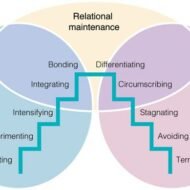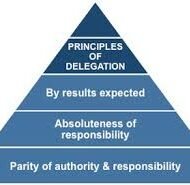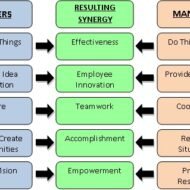Posted by Managementguru in Human Resource, Motivation, Organisational behaviour, Principles of Management, Training & Development
on Mar 31st, 2014 | 0 comments

Human Behavior- A Psychodynamic Approach In any organization, utmost importance is given to human resource management. Handling or manipulating other resources like physical, financial or production is at your discretion. When it comes to managing your employees, there you go! You start feeling the pinch. Man is like a “live wire” and if you don’t possess the mastery to understand and utilize the power behind his psyche, then you are at a loss and you are not capable of what is called “the wizard touch”. Maintaining the Employee Morale: The main problem with your subordinates or even with yourself might be boosting up of morale. Always keeping yourself in a cheerful proposition will take you to greater heights, as it helps you to achieve your goals faster. Human strength lies in self belief which is his reserved store of strength, the one which he never utilizes or not allowed to utilize to the fullest extent possible. A bureaucratic or autocratic manager should understand the fact that when human mind is given a chance to explore with full freedom instead of following orders it comes out with the greatest ideas; which may prove fruitful to your organization in a big way. Make Your Work-force Dynamic: If a person wants to become successful in a business venture, he should possess the fire of unfailing enthusiasm and the nerve to face the adversities that come in his way. Life is a game and so is business. You can play the game fearlessly when you are backed up by like minded individuals who will carry on your fire to the next level. So it is important on your part to prepare your subordinates to adapt to the different dimensions of the business atmosphere and make them more dynamic. Human mind has the power to grasp things faster than what we assume it to be. Even average performers can be transformed into star performers when, The work itself is appealing, yielding and useful The work has scope for independent activities The Work defines goals or targets The social atmosphere created by the manager is warm Innovative ideas are welcome Empathy on part of the manager The Power of Relaxation: Another important aspect for the betterment of human psyche is relaxation. A relaxed mind can achieve things hundred times better. People who are always on the run have the feeling that they have not accomplished much. If you keenly observe, only 8 hours of productive work is done every day. In order to accomplish whatever you have in your agenda, you definitely need to relax and plan. The art of resting the mind and the power to dismiss all worries and exhaustion is probably the winning formula. The employer who secures the goodwill of his employees can accomplish more with less effort and exhaustion. Try to bring out the creativity of your subordinates to make the climate of your firm cordial and the attitude...

Posted by Managementguru in Business Management, Change management, Decision Making, Entrepreneurship, Human Resource, Leadership
on Mar 30th, 2014 | 0 comments

Power and Balance in Corporate Governance Power has the ability to disorient a person’s behavior and attitude. When properly used it leads to height of efficiency, when misused it calls for calamity and disorientation in the entire business firm. It is nothing but the authority that comes with your job which has to be utilized for constructive purpose and at the same time to ascertain that things are “going in the right direction.” Precise use of power leads to a congenial atmosphere in your business arena”. Otherwise in course of time you might have to tackle warfare with your subordinates and the “undercurrent of animosity” might ruin your business success. How it affects Inter-Personal Relationship: When we talk about POWER it usually fits well into the top level management cadre, as managers and senior managers are assigned with huge powers in order to lead the firm in times of crisis as well as maintain the consistency of the nature of the firm. So when there is abuse of power consciously or unconsciously, people create a space between themselves and that particular person who misuses the power. So the result would be a lack of interpersonal relationship between the manager and the employees. Managers generally acquire and use influence that has its impact not only on the behavior of the individuals, but also on the organizational effectiveness as a whole which in turn affects productivity. Use Power as a Constructive Tool: In fact, authoritative behavior is often misunderstood by most of the managers in the business setup; there is a need for the managers to skillfully use their power in order to extract work from their teams as well as to maintain a balance between the extent to which authority must be used and the tolerance level of the employees’ (mind set). So it is more of a psychology which involves much critical analysis on the part of the manager to understand the constructive aspects of his authority and how employees at a lower level will always look up to him for support and guidance and not indifference. Power covers and affects the following important aspects, Discretion Crisis management Dependence of employees Responsibility Leadership Governance Interpersonal relationship Change management Environmental influences Reward systems Collaborative management Success of the firm and so on. In order to maintain his own integrity as well as the organisations’ the manager must be able to appreciate the relevance of power in management just by not looking into the literature but act in accordance with the situation. A detailed analysis of power dynamics makes the manager more effective in dealing with behavior inconsistencies in the organization. Try to be more open in your communication and make your employees feel that “You are always there” to support and guide them. This in turn will make your “Boss to have a second look at you” for a promotional pay. This discussion is from the manager’s perspective and there is more to be discussed and considered from an employee’s...

Posted by Managementguru in Human Resource, Organisational behaviour, Principles of Management
on Mar 19th, 2014 | 0 comments

You Can Delegate Authority, but Not Responsibility Responsibility of a Manager: A corporate manager is accorded with the huge responsibility of leading his subordinates in the right direction, by giving proper insights on the tasks to be accomplished. The success rate depends on how well he delegates his authority down the line to get things done. The art of delegation results not only in down sizing his work pressure but also in the empowerment of subordinates, that elevates them to a higher plane of understanding and achievement. An Excerpt from The Art of Delegation: Developing This Essential Managerial Skill Delegation helps you handover the authority of certain tasks to capable team members so that you free up your time to work on more pressing issues. But you still remain responsible to get those completed in proper way. Hence it is essential to have a status check or communication with the team member on regular basis. Accountability of Subordinates: The subordinates, when entrusted with the responsibilities of performing a task by themselves and the necessary authority to make decisions within the area of their assigned duties, are obliged to perform. The necessary assistance and training for the new assignment has to be planned for, by the manager to make them perform as per the expected standards. The thing is right people should be chosen for the entrusted job. They should possess the zeal and enthusiasm to deliver the desired output. Some people perform beyond expectations and they should be rewarded with additional responsibilities. Whatever the case may be, it is a wise thing to delegate simple assignments at the initial stage, and proceed with more challenging jobs depending upon the caliber of the incumbent. THE ENTREPRENEUR’S GUIDE TO DELEGATION Clear and Clever Delegation: Clear and clever delegation facilitates to build a formal organization structure, where the subordinates are trained well and they look up to the manager for direction and guidance. Although the authority is delegated, the manager is held accountable and answerable to the management for the performance output or the end result. Some managers hesitate to delegate, just for the reason that their weaknesses might get exposed. Some don’t have confidence in their subordinates. Some even fear that they might lose their power if the subordinate is very shrewd and exceeds the expectations. Managers fail because of poor delegation; the reasons being personal attitude of managers in delegating authority. Let us understand some of the basic principles to be adhered to while delegating: The authority delegated to subordinates should be adequate enough to ensure their ability to accomplish the expected results. Authority can be delegated but responsibility can never be delegated. Responsibility of subordinates is “performance” and that of managers is “responsibility for the action of their subordinates”. One cannot be held responsible for a task if he has only limited authority. There need to be a balance between authority and responsibility. The presence of a single superior will invoke greater feeling of personal responsibility among the subordinates. Lack of receptiveness on the superior’s part will incur greater loss in terms of performance and efficiency. Instead, a manager should develop a trustful attitude towards his subordinates and should have the patience to explain the policies, objectives and guidelines and give sufficient authority to perform a duty. HOW WELL EMPLOYEES KNOW ABOUT YOUR ORGANIZATION? Although initially the efforts taken to train a subordinate is time consuming, the more empowered he becomes, less is your time taken to accomplish the enterprise objectives. The superior must be able to create a climate of mutual trust and goodwill, to make delegations effective in the light of expected...

Posted by Managementguru in Business Management, Human Resource, Organisational behaviour, Principles of Management, Training & Development
on Mar 18th, 2014 | 0 comments

Self Appraisal-Amuse Yourself What is Self Appraisal: Self evaluation process involved in determining the level of self efficacy . By and large, corporate companies go for a one tier system of appraisal-where the supervisor generates a confidential report about his subordinates as and when required. This serves as a basis for the management to decide on increments or promotion for the respective candidate. But the question is, is this system fool proof? Definitely not. There are certain lapses that deserve mention and the management has to design suitable appraisal formats to improve or strengthen the weak areas. Purple Minimalist We Are Hiring Project Manager Poster by managementguru.net Some areas where the appraisal process can take a deviation: A biased report given by the appraiser due to various reasonsPerception of appraiser may be wrongThe appraiser sees the appraisee through his ideas and not from the management’s view point, which may lead to clash of ideas where the appraisee is made the victimFlaws in the design of the appraisal process where the top management may not come to know the real need of the appraiseeAppraisees sometimes don’t identify themselves with the organization and its objectivesAppraisees may not know what kind of behavior traits is expected of them by the management So it is imperative on the part of the management to introduce self appraisal process in its agenda, where the appraisee himself becomes the appraiser. This helps the organization to accomplish its overall objectives in a short time through a high performance system. This kind of appraisal by ‘oneself’ makes each and every employee to clearly understand where he stands against the expected scale of behavior. 7 ways to be professional at work Two-tier system as we may call it will help in the following manner: Participative approach infuses a sense of belongingness amongst the workforcePotential of the appraisee can be brought outThe real problem of the employees is knownHigher level of approach or interest to know or evaluate one’s own behavior is seen. Basically, organizations must examine their assumptions about human behavior and come to a common belief about people. If they believe people are basically “bad” management might go for hiring “watch-out-look-out” supervisors, rigid disciplinary regulations, and separate facilities such as parking, dining and rest rooms. All these clearly spell out the existence of distinction between the management and workforce. If the organization comes to a common agreement that people are basically “good”, entirely the approach will be different. Every worker becomes a manager and uniform treatment is given to both the employees and managers of higher cadre. Essentially in my opinion, no organization or work society will succeed without visionaries and uniform treatment that is consistent with basic principles and ethics. It has to be understood that work attitudes and values are ultimately a company’s best competitive advantage. Note: Larsen & Toubro – Engineering major Larsen & Toubro has developed a competency matrix which lists 73 competencies-that vary across managerial levels-to measure performance and gauge developmental needs of its employees. National Panasonic – The Japanese white-goods major has developed a performance-assessment system driven by Key Result Areas (KRAs). KRAs describe performance goals-business, functional, and behavioural ones-with defined time-frames and are decided jointly by the employee and his manager at the beginning of the...

Posted by Managementguru in Business Management, Human Resource, Leadership, Organisational behaviour, Principles of Management
on Mar 17th, 2014 | 0 comments

Leader vs. Manager – what is the connecting thread? Who is a Leader? A leader is always looked up to, by his followers as they are truly inspired by his personality, behavior and the power of his words and actions. The intellectual ability of a leader is definitely on the higher scale than a non-leader and also the perceptual ability and decision making skills are amazing. The main idea of pondering over leadership is that how the qualities of a leader make him more successful and how those unique qualities can be acquired by a manager of a firm to influence a group towards achievement of goals. What makes a leader unique? Every individual is bestowed with at least one special quality that makes him unique. A leader obviously is inherent with so many good traits and qualities that influence others and the best part of the story is that he understands his own potential and employs the right skills at the right time. It is basically a personal quality of character in a man that influences the behavior of others in a productive manner. Top 10 qualities of an effective leader; A man of charisma-the followers should be attracted by his magnetism and willingly contribute to the cause Should have a clear idea of future plans-Here he differs from the manager who is concerned more about the productivity Should be action-oriented, dare to achieve the impossible Should be tough at heart -stick to his principles and not a victim to circumstances Should be flexible, when it comes to the #welfare of his people Maintain integrity and humility Value-driven to gather trust Open and honest in his endeavors Creative-the ability to think out of the box Should possess sense of humor that makes him an affable person and even serious issues can be dealt with ease Is Manager a Leader too? Is it necessary that a manger has to be a good leader too? Of course yes. By virtue of being selected for the post of the manger, a person cannot manage the show. Unless he possesses the true qualities of a leader he cannot pull the strings tight and lead the organization in the right track. Without the right elements of leadership, he merely becomes a care-taker enjoying his pay and perks. He will not be liked by his subordinates if he doesn’t have that drive to make a mark of himself as an assertive person and in due course of time either he becomes the entertainer of the firm or he loses his integrity, both of which is not good for the organization’s efficiency and productivity. Roles of an efficient manager: A manager has the necessity to prove himself in terms of planning, formulating strategies, successful completion of targets, increased production, increased sales, acquisition of more orders, managing his team without much conflicts and above all make the team to abide by and obey his rules. A manager to be a successful leader need not be aggressive to prove his point but tough and determined to get things done. Big corporate firms frame ‘systems’ which are nothing but templates of action incorporating all the elements needed for execution in a tailor made fashion. A manager has to now focus on the strategic elements of management since the technicality is being taken care of by the systems. What is the right management approach? Managers expect subordinates to nod their heads in approval to whatever they say. This not the right approach; there should always be a reciprocal relationship between both the parties as in the case of a leader and his followers. A give and take policy makes you more...










